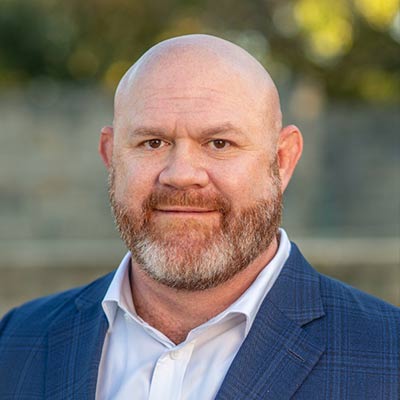Introduction
In the intricate web of cybersecurity practices, the Principle of Least Privilege (PoLP) stands out for its foundational importance in establishing a secure, efficient, and resilient organizational IT environment.
Instituting PoLP from the very inception of a company not only fortifies its defenses against cyber threats but also embeds a culture of security, streamlines operations, and ensures regulatory compliance. Moreover, leveraging the expertise of a Fractional CISO, such as those provided by Insider Direct, can significantly enhance the effectiveness and efficiency of integrating PoLP into an organization’s cybersecurity strategy.
Building a Security-Conscious Culture
Implementing PoLP from the beginning instills a security-first mindset among employees, integrating security practices into daily operations.
This proactive approach strengthens:
- Security Culture: Implementing PoLP from the beginning ingrains a security-first mindset among employees, making security considerations a natural part of daily operations. This early emphasis on security helps to establish a strong culture of awareness and responsibility across all levels of the organization.
- Employee Onboarding: New hires are introduced to access protocols and security practices from day one, reducing the risk of inadvertent breaches and reinforcing the company’s commitment to data protection.
Enhancing Operational Efficiency and Compliance
Adopting PoLP early on offers operational advantages that are both immediate and cumulative:
- Streamlined Access Management: Starting with PoLP allows for the development of clear, streamlined access protocols tailored to the specific roles within the organization. This prevents the accumulation of unnecessary access permissions over time, simplifying the management of access rights and reducing administrative overhead.
- Agility in Role Definition: Early adoption facilitates a more agile approach to defining and adjusting roles and access needs as the company grows. This agility ensures that access rights can evolve in tandem with changing organizational structures and responsibilities without compromising security.
- Regulatory Alignment: Many regulatory frameworks emphasize the importance of access control and data protection. Embedding PoLP from the start positions companies more favorably in terms of compliance, making it easier to meet and maintain regulatory requirements.
- Audit Preparedness: With a clear, well-documented access control framework in place, organizations are better prepared for audits. Implementing PoLP from the outset ensures that access management practices are transparent, traceable, and aligned with industry best practices. Proactively Mitigating Threats.
The early integration of PoLP significantly reduces the organization’s exposure to both external and internal threats:
- Minimized Attack Surface: Limiting access privileges from the outset makes it harder for attackers to find and exploit vulnerabilities within the organization’s systems.
- Reduced Insider Threats: A well-implemented PoLP strategy also reduces the risk posed by insider threats. With access rights tightly controlled and monitored, the potential for malicious or accidental misuse of access is significantly diminished.
The Role of a Fractional CISO
The expertise of a Fractional CISO is pivotal in navigating the complexities of implementing PoLP effectively from the start. These professionals offer:
- Strategic Oversight: Ensuring that PoLP is integrated into the broader cybersecurity and business strategy, balancing security needs with operational demands.
- Risk Assessment: Identifying critical assets and defining appropriate access levels to protect these assets without hindering business operations.
- Policy Development and Technology Selection: Leading the creation of comprehensive access policies and selecting the right technological tools to enforce PoLP.
- Awareness and Training: Developing programs to educate employees about their role in maintaining security and the importance of PoLP.
Insider Direct: Augmenting PoLP Implementation
Incorporating services like Insider Direct into the cybersecurity framework can amplify the benefits of PoLP. This service provides organizations access to Fractional CISO expertise alongside a transparent and efficient procurement model for necessary cybersecurity tools. Insider Direct facilitates:
- Cost-Effective Procurement: Ensuring organizations implement PoLP with the appropriate technology solutions without the burden of inflated costs.
- Expert Guidance: Offering strategic insights from experienced CISOs to tailor PoLP implementation to the organization’s unique context and needs.
Conclusion
The Principle of Least Privilege is not merely a cybersecurity tactic but a strategic business decision that influences an organization’s operational efficiency, regulatory compliance, and resilience against cyber threats. Implementing PoLP from the outset, with the strategic guidance of a Fractional CISO and the support of services like Insider Direct, establishes a strong foundation for secure and scalable growth. This comprehensive approach ensures that organizations are well-equipped to face the evolving cyber threat landscape, maintaining a balance between rigorous security measures and operational agility. By prioritizing the integration of PoLP into their cybersecurity strategy from day one, companies can secure their digital assets and data, fostering an environment of trust and safety that is critical for success in the digital age.
Get in touch with us
Secutor Cybersecurity is a trusted partner comprised of industry leading experts in the fields of Cybersecurity and Governance, Risk and Compliance. We partner with our clients to deliver on-demand solutions tailored to expertly navigate the regulatory demands of their specific industries.
Our proven track record of successfully exceeding client expectations is achieved through the combination of our methodical approach, advanced technologies, subject matter experts, and synergy with client team members.
Secutor is your team of world-class problem solvers with vast expertise and experience delivering complete solutions keeping your organization protected, audit-ready, and running smoothly.







